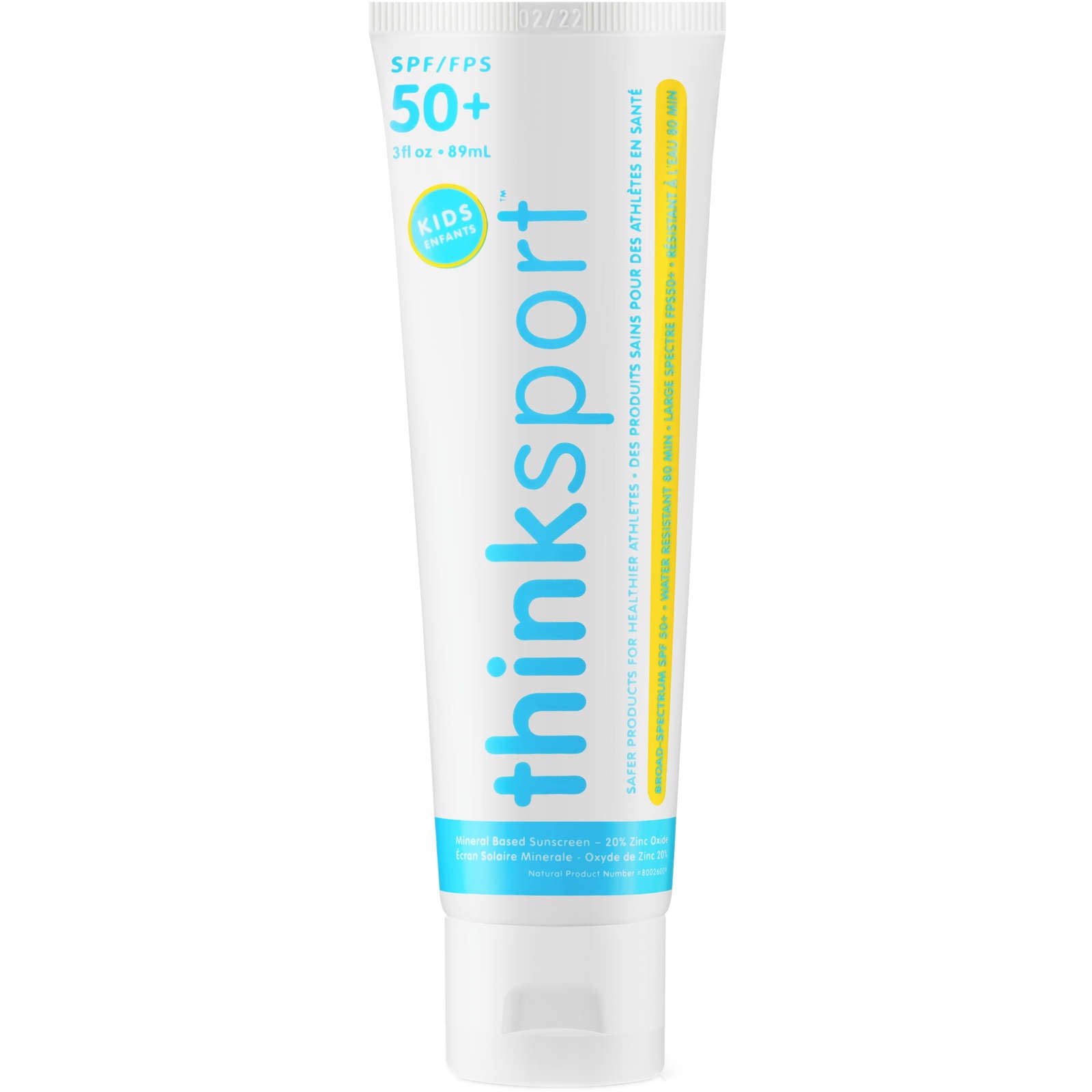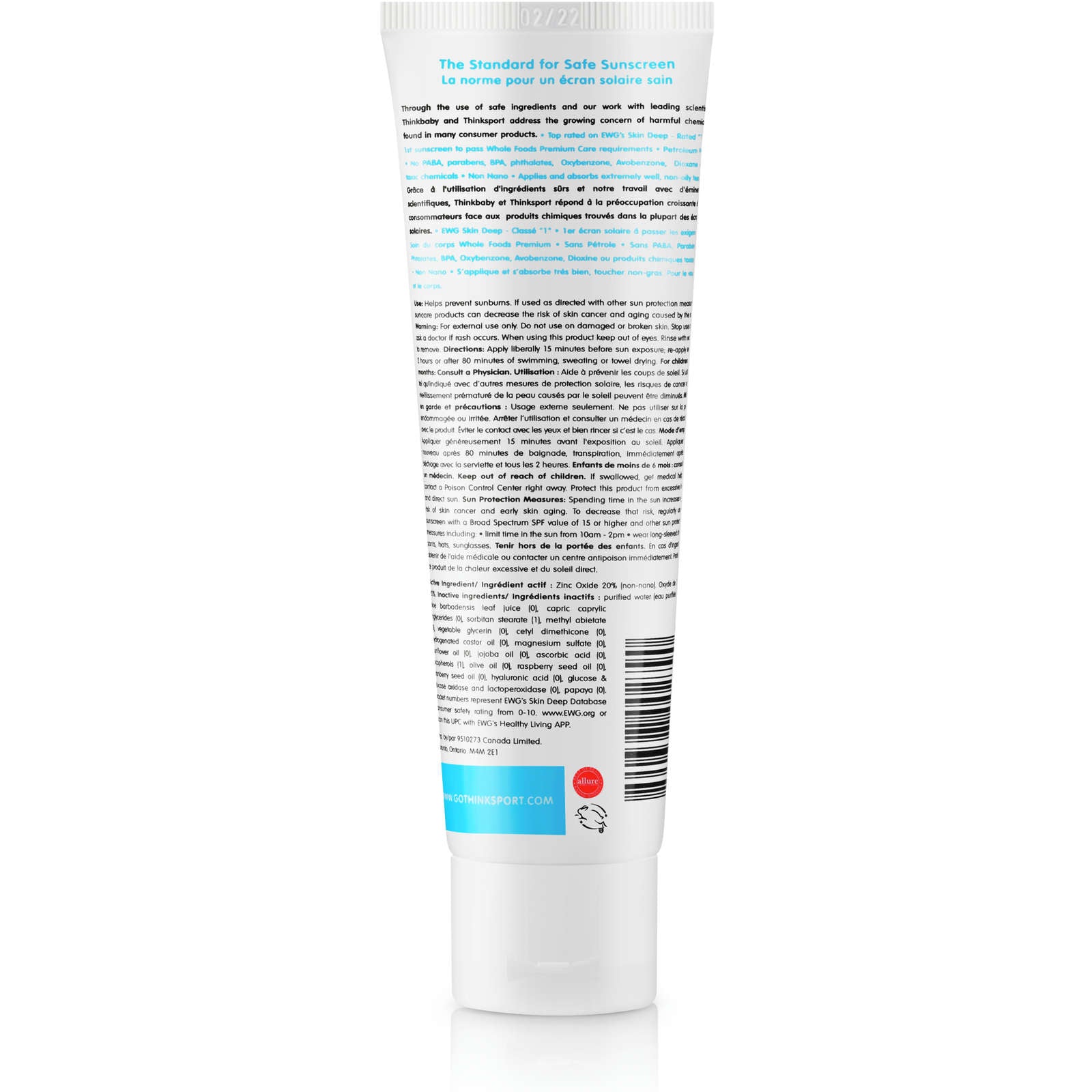The majority of sunscreens currently on the market are full of questionable ingredients and known carcinogens. Simply looking at the ingredients you'll quickly realize you don't recognize any of them. Many existing sunscreens have been brought to market with little concern for their safety. Not only do ingredients in sunscreen interact with skin, but data shows after application of lotions, some of the same chemicals can be detected in the bloodstream. Most people wear sunscreen to reduce the chance of developing cancer, so why apply something that could potentially increase this risk? This question has unfortunately left many people moving away from using sunscreen at all.
How are the Thinkbaby and Thinksport sunscreens different?
At Thinkbaby and Thinksport, we are continually expanding our mission to provide safe products by identifying consumer product categories with known human health issues. Specifically, we target products that contain high levels of hormone disruptors and carcinogens. We then work with leading scientists worldwide to create safe alternatives.
Thinkbaby and Thinksport sunscreen is highly effective, falls into the highest category for water resistance (as defined by the proposed 2012 FDA Sunscreen Monograph) and has a sensible SPF 50+ rating. A quick look on your local drugstore shelf will show an increasing number of chemical sunscreens boasting ultra-high SPFs of 70 and greater. An SPF higher than SPF 30 offers only minimal improvement in sun protection and does not provide insight into its ability to protect for both UVA and UVB. Instead, these ultra-high SPFs are inflated through the use of chemical UV absorbers. In the 2012 Sunscreen Monograph, the FDA proposed that SPF 50+ will become the maximum value. The proposed Monograph will also eliminate the terms "Sweatproof" and "Waterproof" as false claims.
You should know that the effective difference between SPF 30 and SPF 100 is approximately a 2.5% difference. Don't be misled by ultra-high SPF numbers. Additionally, Thinkbaby and Thinksport sunscreens utilize average zinc oxide particles greater than 110nm. Kevin Brodwick, founder of Thinkbaby and Thinksport explains why: "We always use the precautionary principle and as we expect the debate on the safety of nanoparticles to continue, we asked a simple question: Does the product have to contain nano particles to be an effective sunscreen? The answer is, quite simply, "NO"!
We also do not and won't use aerosol dispensers, nor should you. Scientists have shown that parents apply on average 25% of the correct amount when using aerosol. As the SPF is actually a logarithmic function, if you are applying an SPF 100, you're actually only putting on SPF equivalent of 3. More importantly, there is significant concern that children and parents are inhaling the particulates. If you look at the ingredients in aerosol sunscreens, you'll quickly determine why you probably don't want to breathe it.























